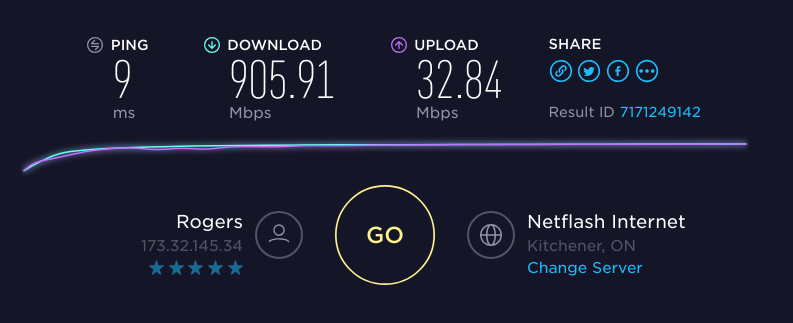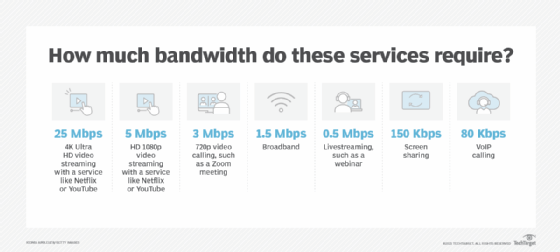Exploring the Partnership Between Megabits Per Second and Download Speeds
Exploring the Partnership Between Megabits Per Second and Download Speeds
Blog Article
Just How Megabits Per Second Influence Your Online Tasks
The concept of megabits per second (Mbps) plays a pivotal function in forming our on the internet experiences. Greater Mbps can boost performance and lower disturbances, while inadequate speeds may promote stress and inefficiency.
Recognizing Megabits Per Second
When considering internet rate, it's essential to recognize the idea of megabits per second (Mbps), which acts as a common dimension for information transfer rates. This metric evaluates how much data can be sent over a web connection in one second, providing a clear understanding of performance capabilities - Megabits Per Second. For context, one megabit amounts to one million little bits, and Mbps is frequently made use of to express data transfer for various online activities
A higher Mbps suggests a much faster internet connection, allowing users to do jobs such as downloading data, surfing sites, and taking part in on-line pc gaming extra efficiently. Common browsing requires around 1-5 Mbps, while streaming high-def video might demand 5-25 Mbps. Recognizing these requirements is critical for figuring out the ideal web speed needed for specific activities.
Additionally, the variety of tools linked to a network can influence overall performance. Multiple individuals streaming, pc gaming, or downloading at the same time can stress available transmission capacity, causing slower speeds - Megabits Per Second. Evaluating personal online behaviors and needs is vital in picking a net strategy that lines up with one's requirements, making certain a smooth digital experience
Streaming and Buffering Issues
Streaming high-definition web content has actually ended up being a staple of contemporary on-line entertainment, yet it is usually accompanied by frustrating buffering concerns. These disturbances can significantly interfere with the checking out experience, causing discontentment and potential loss of target market engagement. Buffering occurs when the information transmitted from the streaming solution is not obtained rapidly enough to preserve a smooth playback, typically as a result of inadequate net speed measured in megabits per second (Mbps)

Moreover, real-time streaming can be influenced by network blockage, which occurs when several devices share the very same transmission capacity. Enhancing link speed and making sure appropriate Mbps is crucial for a smooth streaming experience. As streaming solutions proceed to progress, comprehending the effect of Mbps on buffering problems continues to be crucial for customers seeking nonstop entertainment.
Online Video Gaming Performance
The effect of net speed on on-line tasks prolongs past streaming, substantially influencing online pc gaming performance. In competitive pc gaming, low latency and high data transfer are vital for a seamless experience. A quick link reduces lag, allowing gamers to react swiftly to in-game events, which can be the distinction between triumph and defeat.
Bandwidth, gauged in megabits per second (Mbps), plays an essential function in supporting multiple tools and pc gaming systems all at once. Insufficient bandwidth can lead to dropped connections or lowered game high quality, adversely impacting gameplay. For example, on the internet multiplayer games call for considerable information transfer, especially throughout peak gaming hours when numerous gamers are online.
Fast-paced first-person shooters require higher rates to preserve responsiveness, while turn-based approach video games might function fairly well on reduced speeds. As online video gaming proceeds to evolve, with increasing graphical integrity and more intricate multiplayer atmospheres, the demand for greater Mbps will just escalate.
Video Conferencing Quality
In today's electronic landscape, video conferencing high quality is heavily influenced by internet rate, especially in terms of data transfer and latency. Top notch video calls require adequate data transfer to transfer sound and video data perfectly. Typically, a minimum of 1.5 see this page Mbps upload and download rates is advised for conventional definition video, while high-definition video clip conferencing normally requires a minimum of 3 Mbps.
Latency, or the delay in between sending and obtaining information, additionally plays a crucial function in the customer experience. Higher latency can lead to echo, lag, and disjointed communications, which can prevent partnership and engagement throughout conferences.
Additionally, several individuals in a video clip meeting can stress offered data transfer, necessitating even greater rates. Network blockage, often caused by synchronised tasks like streaming or downloading, can additionally degrade video top quality. Therefore, for organizations depending on video clip conferencing for remote cooperation, recognizing the partnership in between megabits per second and overall interaction quality is necessary for keeping efficiency and enhancing digital interactions.
Selecting the Right Web Plan
Picking a proper web plan is vital for making certain optimum performance in numerous on the internet tasks, especially in setups that require high transmission capacity, such as video clip conferencing and online gaming. Megabits Per Second. When thinking about a web plan, it is important to assess both the rate and data allowance to match your details usage needs
For households with several individuals taking part in simultaneous activities, a plan offering higher megabits per second (Mbps) is advised. Commonly, a minimum of 25 Mbps is ideal for common streaming and browsing, while plans surpassing 100 Mbps are more suitable for even more intensive tasks. Additionally, consider the nature of your online tasks; video conferencing needs at least 1.5 Mbps upload rate, while on-line gaming find more info may require a reduced latency but consistent link.
It is also crucial to evaluate your data cap. Limitless data strategies can protect against throttling and interruptions, specifically if hefty usage is anticipated. Finally, study solution companies in your location, as availability and prices can differ. By thoughtfully picking a net plan tailored to your demands, you can improve your on-line experience, making sure smooth, nonstop accessibility to your favored tasks.
Verdict
Finally, the value of megabits per second (Mbps) fit on-line tasks can not be overemphasized. Higher Mbps promotes seamless streaming, reduces buffering, enhances gaming experiences, and guarantees high-quality video clip conferencing. Alternatively, insufficient transmission capacity can bring about irritating interruptions and lessened efficiency throughout various jobs. A thorough understanding of specific or household Mbps needs is crucial for choosing a suitable internet his explanation strategy that adequately sustains diverse online activities and customer needs.

Usually, a minimum of 25 Mbps is ideal for typical streaming and browsing, while strategies going beyond 100 Mbps are more suitable for more extensive jobs. In addition, think about the nature of your online activities; video conferencing calls for at least 1.5 Mbps publish speed, while on the internet video gaming might require a lower latency however consistent connection.
Report this page